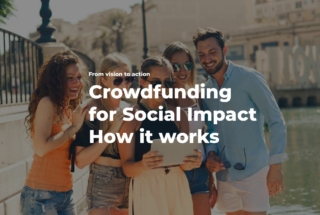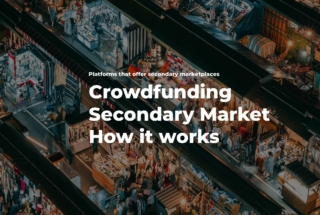Overview of Political Crowdfunding
The term “political crowdfunding” is used to describe fundraising for civic purposes by civic individuals and/or organisations. Although it can apply to crowdfunding for public bridges, parks and other property, as well as raising money for a campaign. A prime example of how to hold a political fundraiser is Barack Obama’s first campaign in 2008 that raised $137 million in small donations, followed by the re-election that attained over $214 million.
Let’s explore some more the purposes, regulation and ethics of political crowdfunding.
What you will learn in this post:
The Purpose of Political Crowdfunding
Aside from being an additional source of financing for political campaigns, crowdfunding can play a major role in other aspects:
- Reducing the influence of big donors. Political party fundraising is often frowned upon due to the influence that it grants to upper-class individuals and corporate elite, making the party play by their rules and taking away the power from the nation. Political crowdfunding resolves this issue by placing a cap on the amount of money that can be donated by a single individual.
- Broadening the political party’s supporter base. Making the opportunity to support a politician more accessible to the masses as opposed to only high-income individuals increases the number of people that are eager to promote the party, vote for it and inspire other people to do so.
- Enhancing the sense of community and increasing commitment. Creating a readily available gateway for people to get into groups united by a common ideology improves the social environment and increases the commitment of individuals to the party, making them more likely to donate more and vote in the future.
- Reducing the time and effort to raise funds and promote the party. While looking for large-scale investors can be a scrutinous and difficult task, making support available for smaller donors not only increases the rate at which funds are raised, but also promotes it by word of mouth.
- Providing access to political activity for people with lower income. Although traditionally being politically active is associated with high income, it’s beneficial both for the party and the society to have a way of letting working class people get involved and express their opinion freely.
- Improving campaigns. When one makes a donation via an online platform, they leave a trace of information behind that can be used in order to create micro-targeted campaigns for certain social groups, thus improving the quality of the campaign and broadening the reach.
- Lowering the cost of running large-scale political operations. Traditional way of promoting a party is very costly and involves lots of exposure in the media. In contrast, running a political crowdfunding website is inexpensive and provides significant profit.
Regulation of Political Crowdfunding
The rules and regulations for donations to political parties differ in each country. For example, most governments place a cap on the size of donation that can go unreported to encourage smaller donations – like in the UK, where you can accept a donation of up to £500 without having to register it. Coincidentally, large sums are subject to thorough inspection. This regulation is often bypassed when substantial donations are split into smaller amounts in order to meet the threshold. In the UK, political crowdfunding is subject to regulation by General Data Protection Regulation (GDPR) and Privacy and Electronic Communications Regulations (PECR).
Online crowdfunding campaigns in the US are regulated by FEC (Federal Election Commission), who state that “Campaign committees may solicit contributions over the internet as long as the solicitation includes the proper disclaimers”, referring to the need to state who is paying for the effort and whether it’s been publicly authorised by the candidate.
Political Crowdfunding and Data Ownership
Cybersecurity and data protection are two of the most major concerns of political crowdfunding. When a supporter makes an online donation, they willingly give up some of their personal data that can be used by the political party to improve their campaign. However, any kind of data is prone to being stolen in a data breach, putting donors at risk.
According to the UK’s GDPR’s Guidance on political campaigning,
“…if you are processing personal data for the purposes of political campaigning and you don’t take reasonable steps to follow this guidance, you are likely to find it difficult to demonstrate that your processing is fair and complies with the UK GDPR and PECR. If you process personal data in breach of the UK GDPR or PECR, we can take action against you. For serious breaches of the data protection principles, we have the power to issue fines of up to £17 million or 4% of your annual worldwide turnover, whichever is higher.”
As such, it’s important for both the fundraisers and donors to think about whom their data is available to when the donation is made – for instance, it might be that the data is owned by the crowdfunding service provider, in which case the party itself wouldn’t be able to use it for microtargeting and marketing purposes or could even lose access to the data entirely. Information about data ownership is usually found in terms of service.
Furthermore, the party must keep a record of all significant donations made over a certain period of time in order to prevent fraud and be able to provide valuable information in court.
Ethical Considerations in Political Crowdfunding
Political crowdfunding may present both a solution to some old ethical problems in finance and political campaigning, and create new challenges. Overall, the advantages raise the collective level of empowerment – it acts as a ground for the emergence of alternative models of social organisation and community:
- Political crowdfunding is a powerful democratisation tool for the allocation of financial resources. It breaks down the wall of the traditional monopolised approach to the control of political parties and financial institutions, weakening the control of individual people and organisations and giving power to the crowd.
- It allows more groups of people, including marginalised communities and groups where discrimination is especially prominent, to express their political position, creating ways in which inequality in the society can be minimised.
- It acts as a channel of provisioning of public goods where traditional financing often lacks, such as healthcare, education and green energy.
- It serves as an open-access platform for free and democratic exchange of opinions and the financial support of political activism.
However, there are a number of significant drawbacks that must be taken into consideration:
- Political crowdfunding, just like crowdfunding in general, creates a platform for the manipulation of large groups of people that can be collectively missguided, leading to illogical and aggressive behaviours exacerbated by “herd mentality”.
- There is a concern for the “tyranny of the majority”, where the power of political decision-making given to the larger social group takes away the voice and hurts the minorities.
- Political crowdfunding may indirectly legitimise misappropriation of public funds by the government in providing additional routes for the financing of public services (e.g. healthcare, education, etc), as funding via online platforms reduces the pressure on the institutions that are normally directly responsible for such activities.
Conclusion
Political crowdfunding is a powerful tool in the democratisation of fundraising for a campaign, giving access to more people and marginalised communities to expressing their position in the society. Despite some ethical concerns, it is still a clearly positive force in the world of politics and civic enterprise.
Unfortunately for such a promising area, there aren’t many crowdfunding platforms designated specifically to political crowdfunding. If you are curious about starting your own business in this sector, contact LenderKit for a consultation on our approach to creating a crowdfunding platform for political campaigns.




